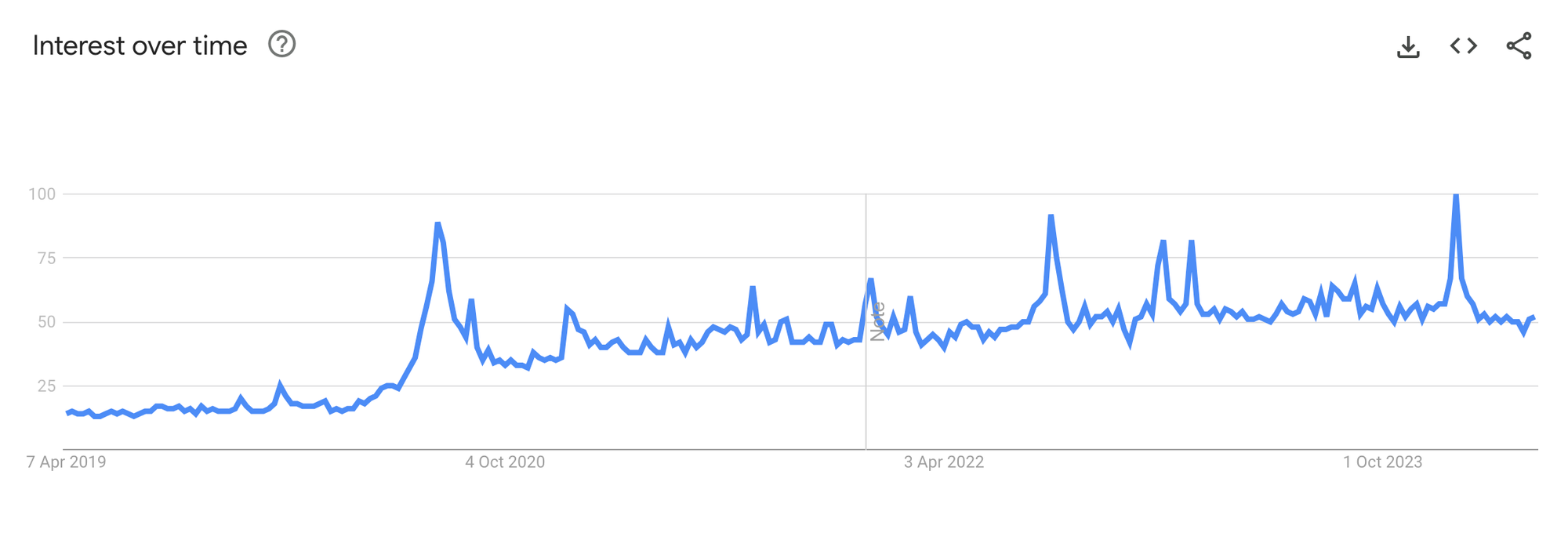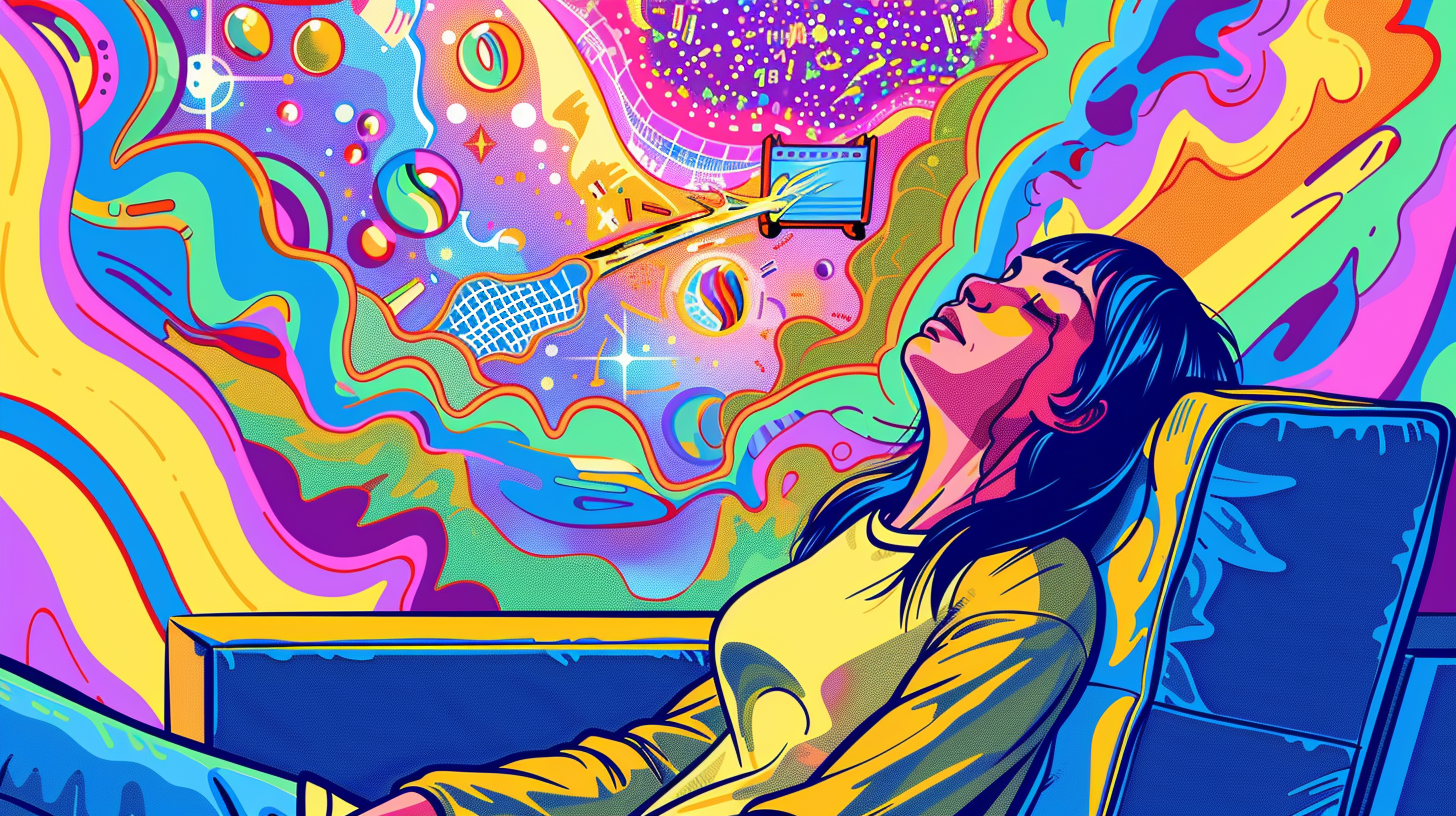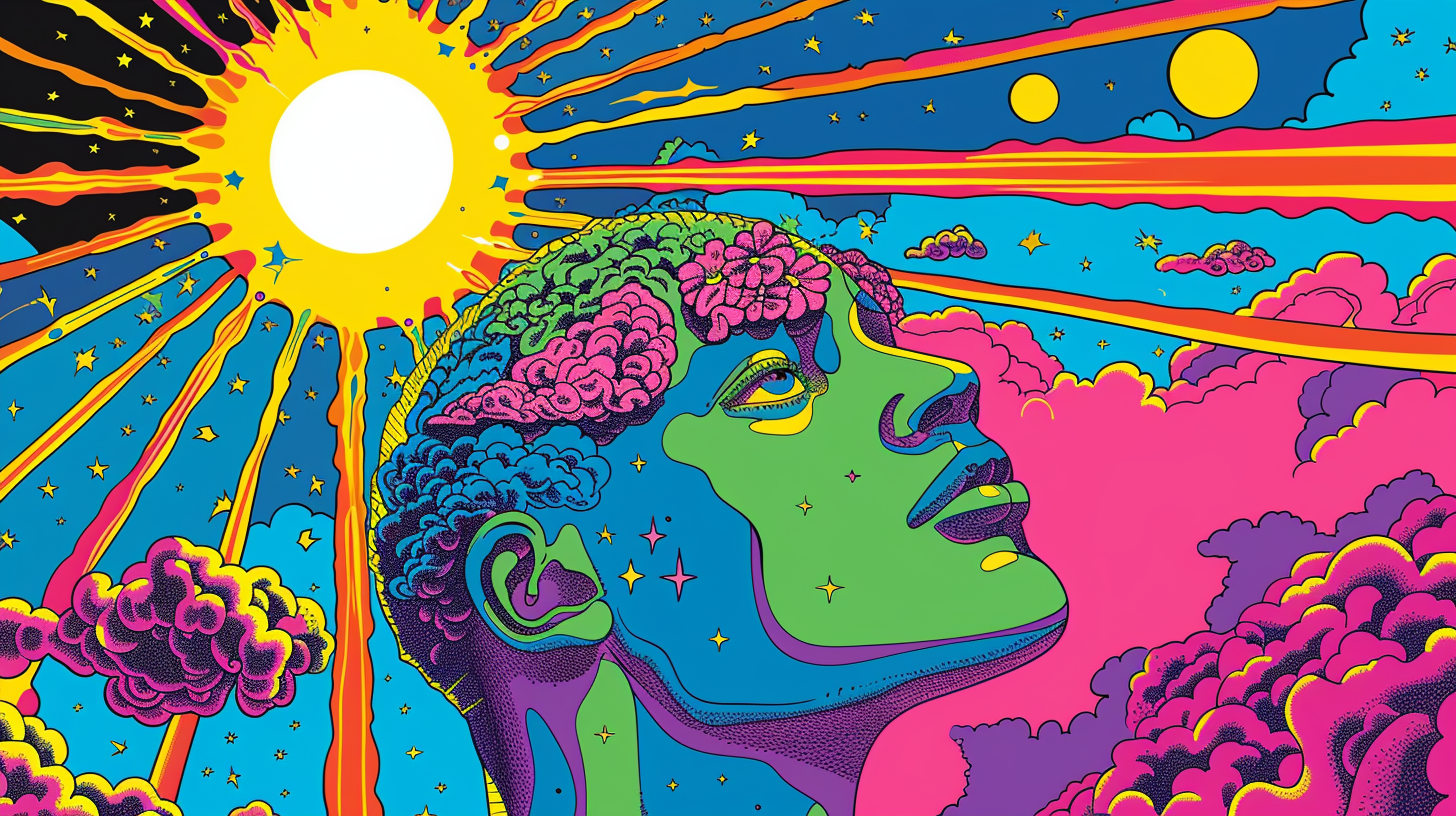Why we need to all stop manifesting 🙏

Have you manifested lately? Even if you haven’t, you probably know someone who has, or at least, professed to the benefits of bending the universe to their whim.
Indeed, since the COVID days, Google searches for “manifesting” went up 600%. Over on social media, it has become one of the most enduring topics of conversation. On TikTok, videos about manifesting have been viewed more than 9 billion times, and on Instagram, there are tens of millions of posts telling you of its secret, but easily accessible powers.

There’s a Reddit dedicated to famous manifestors, and apparently, even historical figures are believed to have successfully harnessed the power of the universe to get what they want. But it’s far from an online-only phenomenon.
Real-life courses and retreats have sprung up to offer participants the chance to manifest everything from creativity, happiness, financial freedom and of course, your perfect partner. For a fee, naturally.
There are directories dedicated to helping you find the right manifestation retreat. You may think this is just a harmless piece of self-care. For most people, it can be comforting to believe that the universe cares for us and has a plan.

But look a little closer at this idea and what you find is an illusion. An illusion that raw, dogged, self-belief gives you what you want. And if you don’t get what you want? It’s because you didn’t want it badly enough. Or you did it wrong, or you didn’t spend enough money.
Manifesting is the perfect trap to give you just enough to believe that it works, while never enough to make you stop trying. That’s why in this week’s Brink I’m going to try and persuade you that behind those smiley, happy, manifesting people lies a harsher reality: your dreams and desires have become commoditized, and people will always find ways to try and sell you the answer, irrespective of if it works or not.
What is manifesting? 🤔

The concept changes depending on who you ask. But roughly it goes something like this: manifesting takes the idea of a positive mental attitude and turns it into a super power that can bring you anything you want.
It sees negative thoughts as “limiting beliefs” i.e. that’s you getting in your own way, and insists that the reason you don’t get what you want is that you haven’t managed to successfully banish those bad vibes.
But dive into TikTok and you’ll find a world of paradox and complexity that the longer you look at it, the less it makes sense. One particularly rich corner of the manifesting world is the belief in certain sequences of numbers. For example, 1111 and 444 are “angel numbers” sent from the universe, and there are special sound frequencies for manifesting specific wants (528 hertz is the “love frequency”).

There are manifesting emoji (the Nazar Amulet, which in many cultures’ folklore is believed to ward off the evil eye, is a favourite) and guides on how to create your own sigils, a personal motif often used in witchcraft. There are also kits you can buy containing crystals and other spiritual paraphernalia, all designed to help you get what you want.
But clear away all the froth and what you find at the heart of it all is an idea commonly referred to as the “law of attraction”. This is an old idea - like more than 150 years old - that believes our thoughts determine what we attract in life. And they mean not just good things, but bad things too, like illness, and abusive relationships.
The belief is that your head, for better or worse, is in control of everything, including things that it definitely isn’t. This idea goes back a long way.
Mind Cure 💊

The best-known examples of law-of-attraction self-help are Roxie Nafousi’s best-selling “Manifest” released in 2022, Rhonda Byrne’s “The Secret” which came out in 2006 and Napoleon Hill’s “Think and Grow Rich” from 1937 - those dates are important, I’ll talk about them later.
These books take the idea of mind control, and intertwining it with pseudo-spiritual ideas and how they can lead to material gain. But it goes back even further than that.
The manifesting movement's beginnings lie in the American “mind cure” trend of the mid-19th century. Proponents of mind cure believed that all sickness originates in the mind. By having the “right thinking” we can banish those diseases.
An American clockmaker called Phineas Parkhurst Quimby (he was born in 1802 and died in 1866) was among the first to articulate this idea. He reckoned that disease is nothing but a false belief that manifests in the body in the form of physical symptoms. If we accept that disease is in our minds alone, we can easily heal ourselves. These ideas continue to exist today in what are called “New Thought” movements.

A few years later, a mind-cure sect called the Church of Christ (Scientist), founded by Mary Baker Eddy turned up. These “Christian scientists” believed that sickness could be cured by prayer alone. These ideas endured across the 19th century, giving way to a more secular version called positive thinking. Positive thinking was first popularized by the American pastor Norman Vincent Peale in “The Power of Positive Thinking”.
But the first self-help author to combine the spiritual idea of the law of attraction with materialist aspirations was Napoleon Hill. His book, the mega-bestseller “Think and Grow Rich!” in 1937 became the blueprint for a new type of self-help book which centres on the pursuit of money.
Hill’s message was simple: We can all become rich if only we want it badly enough. If we focus strongly on thoughts about money and abundance, the universe will magically resonate with our subconscious and send infinite riches our way.
All we need in order to become rich, reckoned Hill, is to develop a definite desire. Then our thoughts, “like magnets, attract to us the forces, the people, the circumstances of life which harmonize with the nature of our dominating thoughts.” If we “magnetize our minds” and become “money conscious,” we will be millionaires in no time.

The same can be said of The Secret. The wildly popular book from the 2000s, was actually written because Rhonda Byrne’s daughter gave her a copy of Napoleon Hill’s book two years prior. The message was the same: your brain can harness the energy of the universe to get what you want.
People loved it. Oprah Winfrey was one of its biggest fans and helped Byrne’s ode to a book written 80 years prior sell 30 million copies worldwide. And why wouldn’t people love these ideas?
At a time when we feel less in control of what’s happening to the world than ever, manifesting gives a slither of hope that can control this maddening planet of ours. There is also a lower barrier to entry than almost any other activity: All you need are your dreams, and to think about how nice it would be if they all came true.
Manifestors argue that by taking on a “mind over matter” doctrine, that our thoughts are omnipotent and have the power not just to determine our feelings, they can also shape the external world too. We can will the world to be a better place. So what’s wrong with that?
Mind over what matters 🤯

Now, there is evidence to suggest that thinking positively is generally better than thinking pessimistically. There’s even a whole branch of psychology dedicated to the idea. Positive psychology, the idea that we can improve our lives by seeing the brighter side has its place was popular in the mid-twentieth century and still finds it way on to the bookshelves of therapists all over the world.
But manifesting goes way beyond trying to see things differently. It advocates that you can change the world around you, by just thinking about it. But where it can become dangerous is what happens when all this manifesting doesn’t quite get you where you need to be. Call it the law of the unintended narrative.
Because manifestors believe that everything happens to you because of, well, you. If you didn’t get that promotion, if you didn’t get the perfect partner, it was because of you. Suffering, manifestors believe, is because of you. This is a terrible mantra, that is tantamount to victim blaming.
Let’s go back to “The Secret”, the grandmother of the age of manifesting we’re in now. “The condition of being overweight,” the book says, “was created through your thought to it.

To put it in normal terms, if someone is overweight, it is because they thought ‘fat thoughts,’ whether that person was aware of it or not. The positive spin the book places on that assertion is that believers will no longer be worried of being victims of the “luck of the draw.” Instead, “whatever you choose to think will become your life experience.”
Now before I do a giant eye roll, let’s just look at that particular missive. Obesity, says “The Secret”, is the result of conscious - or worse, unconscious - feelings that you wanted to be overweight. It overlooks all of the evidence that suggests that weight gain is based on a combination of factors in our biology but also our environment and our emotional experiences growing up. Obese people have higher rates of trauma and abuse than almost any other group.
But according to “The Secret”, it’s your own stupid fault.
Let’s take that a step further then: cancer, rape, mass shootings, I could go on. But you get the idea, to manifest is to believe that your fate is in your hands, including all the terrible things that may or may not have happened to you. So why do they endure, and why have they, again, captured a new generation of believers?
What a fool believes 🧞

Life can, on regular occasions feel hard, difficult and like it glees in punching you square in the face. And that’s before we get into wider societal challenges, and of course climate change. When someone comes along and tells us it doesn’t have to be this way, it feels like a relief.
Books, influencers and retreats offer us something tantalising: a better life, quickly. It also taps into a powerful idea: that we can guard ourselves against the twin threats of vulnerability and loss of control through our own will. We don’t need other people to get what we want, we can get it all on our own.
This message seems to become more compelling at particularly distressing times. Hill’s original book came out during the Great Depression, and Byrne’s came after the horror of 9/11 and just before the financial crisis. Nafousi’s book rose to prominence in 2022—a year marked by the ongoing effects of the COVID pandemic, growing economic uncertainty, a harsh cost of living crisis, and the horrors of the Ukraine war.
When the world feels like it’s changing in a way we can’t control, this causes us distress. I’ve written about it a lot in this newsletter. Manifesting can make us feel, temporarily at least, hopeful. But the reality, sadly, always catches up.

The problems we have, the issues we can’t resolve, the gaps in our understanding of who we are and what we need, remain untouched. We also let the world off the hook for its contribution to these feelings. Inequality, bad politics, corporate greed, all are allowed to continue because, it’s you, dear reader that is the problem.
But I want to propose an alternate view. One that won’t make me any money, but will hopefully save you some. The universe does not care about you, but there are plenty of people who probably do. If we want to feel better, if we want to change the world, we have to look not to the heavens, but to each other.
Change comes about through a long, slow, but ultimately rewarding process of self-reflection and discovery paired with broadening and deepening our relationships with others. It’s here, in these small places that we can feel and experience change that can add up to something very large indeed. You don’t need a book or a retreat or a 14-day juice cleanse to do that.
Things we learned this week 🤓
- ☹️ Poverty has a direct relationship with anxiety and depression.
- 🎮 It’s official: video games can help you feel less stressed.
- 🎶 Why sad songs make us feel good.
- 😔 Hurt people, hurt people. New evidence on how childhood neglect echoes into adulthood.
If you would be so kind 🙏
Do something nice for someone. If that person is me, then the nicest most nicely thing would be to share this with a friend if it resonates. But doing nice things for others is great too.
I love you all. 💋


